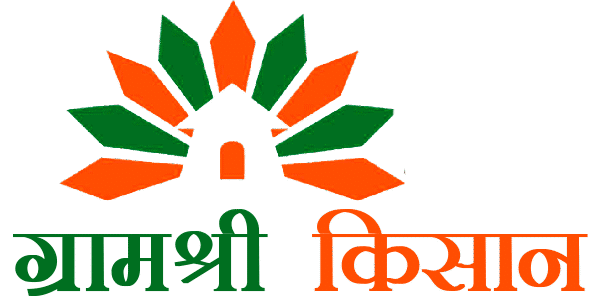Medicinal Plants
Medicinal plant culture is a fast-growing industry in India, fueled by increased demand for natural and herbal medicines worldwide. The industry has considerable economic, environmental, and health benefits. Both nationally and in Bihar, there is enormous scope for development, underpinned by favorable agro-climates and rising government attention.
Benefits of Medicinal Plant Cultivation
Growing medicinal crops has a myriad of advantages compared to conventional farming and the use of wild harvesting.
- Economically More Rewarding:- Most medicinal crops fetch a premium price in the market compared to traditional crops, which results in higher earnings for farmers. This is especially useful for marginal and small farmers who would like to optimize returns from their land parcels.
- Crop Diversification:- It helps farmers to diversify crops, thus avoiding the risks connected with monoculture, such as infestation by pests and price fluctuation of one commodity. This also enhances the stability of the agricultural system.
- Generation of Employment:- Cultivation, processing, and marketing of medicinal plants are labor-based operations, generating ample employment opportunities at the rural level.
- Land Use that is Sustainable:- Most medicinal species are drought-tolerant, resilient, and can tolerate marginal or degraded soils. This encourages productive land use that could otherwise lie idle.
- Maintenance of Biodiversity:- Cultivation on a systematic basis takes pressure off wild populations of medicinal plants, many of which are depleted due to excessive harvesting. This is essential for maintaining the rich biodiversity of the nation.
- Boost to Traditional Medicine:-A consistent flow of good-quality raw materials is critical to the AYUSH (Ayurveda, Yoga & Naturopathy, Unani, Siddha, and Homoeopathy) industry, strengthening the validity and effectiveness of traditional Indian medicine.
Scope and Future in India
The contribution of India to the international medicinal plant market is significant and on the verge of explosive growth. India is one of the 12 mega-biodiversity hotspots of the world and has a long tradition of employing plants in the interest of health and well-being.
The *demand for herbal products globally is rising*, with the Indian market alone projected to grow at a compound annual growth rate (CAGR) of more than 38%. The rise is driven by growing consumer knowledge about the side effects of man-made drugs as well as an increasing desire for natural and organic items.
Major factors determining the scope in India are:
- Diversified Biodiversity:- India boasts more than 7,000 plant species that are known to possess medicinal properties.
- Government Assistance:- The Indian Government, under the *National Medicinal Plants Board (NMPB) and the National Ayush Mission (NAM)*, is encouraging cultivation on a large scale. These organizations offer funding, subsidies, training, and assistance towards developing market linkages.
- Increasing Industry Demand:- The medicinal, cosmetic, and food supplement industries are increasingly using herbal ingredients, providing a sustained and increasing demand for raw material.
- Export Potential:- India is a leading exporter of medicinal plants to nations in Europe, North America, and the rest of Asia. There is great potential to expand this market share with concern for quality control and standardized cultivation methods.
The future appears to be bright, with emphasis on *Good Agricultural and Collection Practices (GACPs)*, organic certification, and the building of strong value chains from farm to industry. R&D in agro-technology and processing will augment productivity and quality even further.
Scope and Future in Bihar
Bihar, with its rich Gangetic plains and varied agro-climatic regions, boasts colossal, largely unexploited potential for medicinal plant production. The state’s agro-climatic conditions are particularly well-suited for a variety of high-value medicinal crops.
Local Advantages in Bihar:
- Agro-climatic Conditions:- The climate and soil of Bihar are conducive to the growth of a variety of medicinal plants, such as *Lemongrass, Shatavari, Tulsi, Ashwagandha, and Safed Musli.
- Traditional Knowledge:- The rural population of Bihar has traditional knowledge about local herbs’ application, which can be utilized for commercial cultivation.
- Labor Availability:- Availability of a huge rural workforce is a strength for the labor-intensive nature of the sector.
Government Initiatives and Future Prospects:
The Bihar Government is identifying this potential and is initiating measures to persuade farmers to switch from conventional crops to more lucrative medicinal and aromatic crops.
Financial Assistance and Subsidies:- The central government, as per central schemes, is extending huge subsidies to farmers.
District-Specific Focus:- These schemes are being executed by the government with district-specific focus on districts having apt climatic conditions like Gaya, Jamui, Nawada, and West Champaran. This selective focus intends to establish specialized centers of cultivation.
Market Linkages:- Farmers are being helped to link up with processing units and consumers so that they receive a good price for their products. The establishment of processing clusters is an integral component of the future strategy.
The prospects for cultivating medicinal plants in Bihar are good. It offers a plausible avenue for *doubling farmers’ income*, rural employment generation, and shaping a green, sustainable economy. With an emphasis on quality, processing, and marketing, Bihar has the potential to emerge as the leading medicinal plant hub of India, making a major contribution to the state economy as well as the country’s health and well-being industry.
